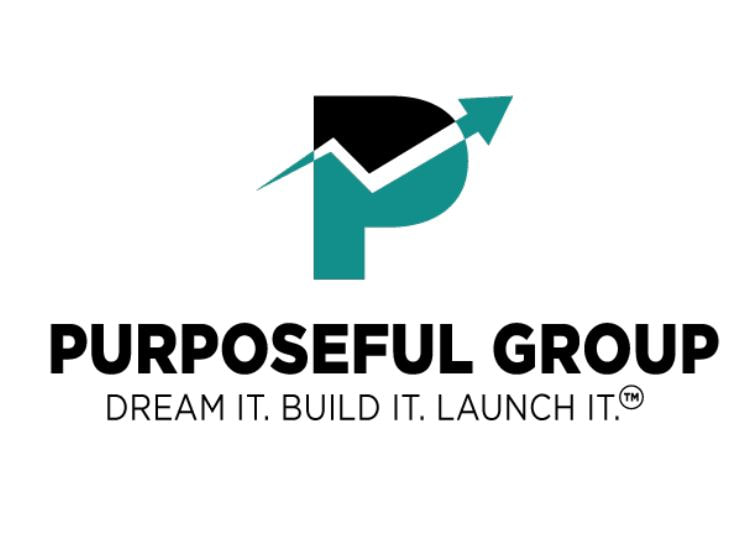|
Once upon a time there was an entrepreneur that was struggling to find a co-founder and was feeling deflated that he hadn't found someone as passionate about the creative element of his business as he was.
He was using evidence of this shared passion as his no.1 criteria for assessing the perfect co-founder. So, what's the problem with that? It took me back to a conversation I had with a wise work colleague some years ago. I said I'd prefer a partner just like me. His feedback was simple: "You don't want someone like you, you want somebody who's going to complement you." He was spot on. That co-founder that you thought was a kindred spirit could lead to a disastrous pairing...
You need someone who looks at things from a different angle, who will challenge your perspective and broaden your horizons, and in turn you will do the same for them. In practice, this means: If you're good at starting. Find someone who's good at finishing. If you prefer to be the creative person and innovator, find someone who's great with figures, data analysis, organisation and dealing with the day today but critical details and "boring stuff". Distracted easily? Find someone who's laser-focused. Not a great people person or networker? Building those skills is important as an entrepreneur, but if one of you has a natural flair and gift of the gab it makes sense to utilise this. You get my drift - find the yin to your yang! Develop some insightful questions that help you to establish a picture of the person, their mindset, and their tendencies. Humans are creatures of habit, and the way someone has lived and managed their life to date, will give you at least some indication of how they might handle things in future. Here are some quotes from tech start up founders that we've interviewed: "I think we get along well because we have compatible characters, and try to maintain a constructive spirit. In many years of working together tensions can rise at times, but when this happens we both try to "steady the ball", empathise with the other's point of view and not let the situation spiral out of control. Mutual respect is a prerequisite." Matic Bitenc, Cofounder, Toshl. "I met Mark, my cofounder at Snappa, at work. I discovered that he did some programming on the side, and started becoming fascinated with the whole online world and online business. The two of us became really good friends, and we started launching side projects while we were both working our day jobs. We had a few failures... then eventually we had minor success, and then some decent success with Snappa, and then we both quit our jobs to go full time on it." Chris Gimmer, Cofounder, Snappa. "We work based on different fields of responsibility and divide the work accordingly. My cofounder is in charge of product development, whilst I handle the marketing and growth of the business, which suits both our natural strengths. Having a complementary skill set between co founders when building a startup is way better than coming from the same backgrounds in my view. Disagreement in itself shouldn’t be a problem and is necessary to grow. Also, founders should openly address and share what’s bothering them with their business partners, instead of letting it stay in their minds. This way you can avoid a lot of problems in the first place. These are some of the principles we have that have helped us in our business." Chris Lier, Cofounder, Lead Gen App. Articles about cofounder challenges and how to deal with them from Sifted.eu. Cofounder walk out. Should I fire my cofounder? My cofounder left. What should we do regarding their equity? Dear Sifted: I don’t agree with my cofounder. Should I leave? What are your thoughts about this? Have you found the perfect partnership, or chosen the wrong person in retrospect? Happy hunting! Written by Kay Kukoyi. Biography Kay Kukoyi CSM FITOL is a multi award-winning entrepreneur, global tech startup mentor, digital skills advocate and speaker. She has written 5 books for entrepreneurs and SMEs, including the Amazon international bestsellers, Don't Hire a Software Developer Until You Read this Book and Entrepreneurial Espresso, and Don't Buy Software for Your Small Business Until You Read this Book. She has been recognised on the #IB100, the Financial Times and Inclusive Boards list of the 100 Most Influential BAME Leaders in the UK Technology Sector. She was the winner of the 2022 BTA Lifetime Award for her outstanding work within the technology sector, and has been a finalist for a number of other awards, including Digital Woman of the Year, Digital Entrepreneur of the Year, Role Model of the Year, Best Small Business Owner, and Best Service Based Business. Kay is the CEO and Founder of Purposeful Group, an award-winning online centre for learning and community focused on entrepreneurship, technology and digital skills training. The company supports and empowers the next generation of entrepreneurs and digital learners around the world through its bestselling books, professional business and career mentoring, and specialist workshops and programmes.
0 Comments
Your comment will be posted after it is approved.
Leave a Reply. |
WHAT INFORMATION WILL YOU FIND on THE PURPOSEFUL GROUP BLOG?Want to build a mobile, or web app to offer to your existing customers? Archives
February 2024
CategoriesAll # Building Software Applications Business Life / Managing A Business Buying Software For Your Business Entrepreneur Interviews Series 1 Entrepreneur Interviews Series 2 Funding Marketing Mindset Productivity Automation Business Tips Productivity-automation-business-tips Productivity Process Automation & Business Tips Research & Publications Startup And Small Business Support Technology Techpreneur Interviews Vision Strategy & Planning X |
|
Address:
5-7 Buck Street, Camden, London, NW1 8NJ Copyright © 2024. Purposeful Group®. All Rights Reserved.
|
Email: courses[at]purposefulgroup.com
Telephone: UK: 0203 974 2225 |

 RSS Feed
RSS Feed